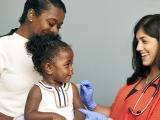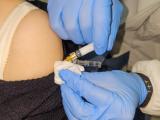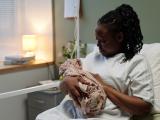Apr 21, 2006 (CIDRAP News) – About half of Americans lack confidence in their government's ability to handle an outbreak of avian influenza in humans, but few have prepared for the threat, according to a survey taken this week.
Fifty-two percent of the 1,001 people polled said they were "not too confident" or "not at all confident" in the government's response to an avian flu epidemic, according to the results of the Associated Press–Ipsos Public Affairs survey, released today. (The survey questions referred to the disease as "bird flu.")
But only 9% of the respondents said they had taken any preparatory steps. Six percent reported stockpiling food and water, 4% had made plans to work from home, 3% had made plans to keep children at home, and 2% had sought a prescription for an antiviral drug.
A 61% majority thought it likely that avian flu will reach the United States in the next year, with 35% believing it unlikely and 3% unsure, the pollsters found.
But only 35% expressed concern that they or someone in their family would contract avian flu. The remaining 65% were "not too concerned" (37%) or "not at all concerned" (29%) about that.
On the other hand, more than half regarded the disease as a probable death sentence. Fifty-three percent said it was likely they would die of the infection if they caught it; 43% said it was unlikely to be fatal and 4% were unsure. (The case-fatality rate reflected in the World Health Organization's current global tally of 204 human cases with 113 deaths is 55%).
Respondents showed strong support for five potential measures to control an avian flu epidemic. The measures and their margins of support were as follows: encouraging people to work from home when possible, 82% to 17%; quarantining people exposed to avian flu, 79% to 19%; closing the borders to people from countries with human cases of avian flu, 74% to 25%; closing schools, 69% to 29%; and offering people experimental vaccines or drugs, 65% to 34%.
An overwhelming 81% majority of those questioned understood that the regular seasonal flu vaccine would not protect them from avian flu. Eleven percent thought the seasonal vaccine would protect them, and 8% didn't know.
The survey seems to signal greater concern about avian flu now than was shown in another poll taken in February. In that survey by the Harvard School of Public Health, 21% of respondents expressed concern that they or a family member would contract avian flu, as compared with 35% in the new poll.
The survey interviews were conducted from Apr 18 through 20. The 1,001 interviewees included 787 registered voters. The poll had a margin of sampling error of plus or minus 3 percentage points.
See also:
Feb 27, 2006, CIDRAP News story "Survey: Most Americans concerned about avian flu"



















